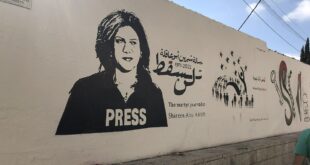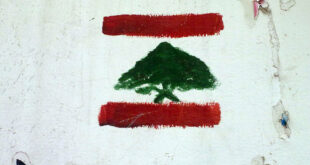Cambridge Arab Media Project: The Media and Political Change in the Arab World, 29-30 September 2004
Iraq has suffered decades of war and brutal dictatorship which have left the country weak and exhausted. The situation in post-war Iraq is unstable, Iraqi civil society has been destroyed, and the economy is in ruins. Baghdad is still in chaos and security in the city is a constant concern. The collapse of the state and all its organs has left a profound vacuum. The numerous rival political interests competing for power and positions in the country are establishing highly partisan media which play a negative role in an already fragile post-war society. Therefore the stabilization of the situation in general requires the creation of an elected government, which is the very pre-condition for the establishment of professional and independent media that provide reliable information and at the same time support the public debate and reflect the diversity of interests in Iraq. Free and independent media are fundamental to the rebuilding of a democratic society in Iraq. Media under the former totalitarian regime were controlled fully by the government and used for its purposes and for the glorification of the figure of the dictator. As a main tool of official power, the media were under the authority of Saddam's son Uday and entirely infiltrated by the security services.
Since the toppling of the former regime in April 2003 the country has witnessed the emergence of dozens of new daily journals and magazines as well as numerous radio stations and terrestrial TV stations. On first sight this appears to be a healthy sign of the process of democratization of the society. In fact, most of the media professionals have politicized backgrounds, and are either pro-government or with the opposition. Indeed there are only few experienced journalists, editors, and managers who professionally run independent media. A lot of obstacles, such as the absence of the rule of law, as well as the lack of a democratic culture in Iraq, hinder the free atmosphere which is essential for any open media to operate successfully. The emergence of truly independent media requires, among other things, that competent Iraqi media people should have control over media projects in their country. Joint efforts should continue to help bridge the gap between the international debate over Iraqi media policy and Iraqi media professionals themselves. But it seems that the US authorities in Iraq are incapable of and unwilling to clarify and firmly separate their public political agenda of interests from any media development strategies. Up till now they have proven stubborn in not giving Iraqis greater control over media. One gets the impression that they are pursuing their own agenda, paying lip service to the concept of a proper public broadcasting system, while doing what they feel is good for the Coalition, not for the Iraqi people. Apart from that, the country is far from being a safe place, in which reconstruction or development programmes can be carried out. Till today the process of restoring order and public services is very slow. In the capital Baghdad the reconstruction process is expected to take even longer. Under these circumstances the majority of Iraqis will probably continue to do what they did in the past, namely rely on media from outside the country simply because they are not convinced either of the Coalition Provisional Authority's (CPA) or the government's intention to engage them in the discussion about the future of their country. The CPA hired a private defense contractor to try to establish a national radio and TV station, the Iraqi Media Network from the remnants of the former national broadcaster. This process was unsuccessful because it was full of political, technical, and security difficulties. Part of those difficulties was due to the unsettled situation within the CPA itself and the lack of any transparent strategic plan for re-establishing a national Iraqi media network.
In late July 2004 the National Communication and Media Commission (NCMC) endorsed a draft law on regulating media in Iraq, whereby broadcasting stations will be subject to written rules and criteria defining the principles of work and legal standards. In addition to the NCMC, the interim government has also set up a Higher Media Commission, HMC. The extent of the HMC´s powers and activities and its relation with the NCMC is still unclear. The National Communication and Media Commission set up in March 2004 to act as an independent regulator for broadcasting and telecoms, estimates that after seventeen months of unregulated media growth there are now about eighty radio and twenty-one TV stations on the air inside Iraq. Most of them are run as local mouthpieces of political factions. But a few commercial channels aspire to be successful national broadcasters. They include Al-Sharqiya TV, which describes itself as the first private national channel not tied to any political, ethnic, or sectarian group. It promises programs with a local flavour as well as political comedy. The channel's newscast focuses on developments in Iraq and the political, economic, and social conditions there. Al-Sharqiya does not air religious programmes and does not carry the call for prayer or Friday sermons. All drama series are Iraqi in terms of production, actors, and dialect.
It is obvious that Iraq is experiencing a media boom and for the first time satellite dishes are offering access to international TV stations, but only a limited number of citizens can afford them. Those without satellite dishes rely on the only nationwide terrestrial TV channel, the coalition run Al-Iraqiya. Although Al-Iraqiya is seen with good reception in central Iraq, the signal is not received as strongly in south-eastern Iraq, which explains why the population there tends to watch Iranian TV channels instead. This channel is run on contract by the US broadcasting equipment manufacturer Harris Corporation and a Lebanese partner. Critics say its role has been more that of a tool for getting the Coalition's message out than of an independent voice. Its presentation and news are considered unprofessional and weak. There is also Alhurra satellite TV station, which is funded by the US government and was launched in February 2004. Alhurra does not air commercials or generate any revenue and thus is dependent on the US government for its money. Alhurra spent $20 million to buy broadcast equipment and technology and to renovate the studio. The rest of the money went for operating costs and salaries, which network representatives say are in line with the US government's pay scale. Alhurra is the latest and most technologically advanced television organization to enter the crowded Middle East satellite market. This channel is a 24-hour news and information network broadcast entirely in Arabic. It can be seen in twenty-two countries in the region via Arabsat and Nilesat. In April 2004, a second channel was added called Alhurra Iraq specifically for Iraqi viewers.
The radio landscape offers a considerable variety of radio stations. Among them Radio Sawa, Radio Dijla, Peace Radio FM, Ashur Radio (in Arabic and Assyrian), Bilad Radio, Radio Al-Mustaqbal, Voice of the People of Kurdistan (in Arabic and Kurdish), Shafaq Radio (in Arabic and Kurdish), Voice of Iraq (in Arabic, English and Turkmen), Dar Al-Salam Radio (Iraqi Islamic Party) and US-funded Radio Free Iraq.
The future budget for Radio Sawa and the two Alhurra television stations is expected to exceed $52 million. In July 2004 Al-Fayha ("The Vast", one of the Arabic names of Basra) satellite TV, a new Iraqi satellite channel, began transmission from the United Arab Emirates. It is reportedly licensed in Dubai Media City. Additional terrestrial channels are expected to broadcast in the near future.
Amid this media chaos, however, the provision of balanced reporting--especially about local issues and humanitarian concerns--remains insufficient. Currently in Iraq, the media is concentrated in three areas. The first is the capital Baghdad, the second is in the south of the country with its four main centres of Basra, Amara, Najaf, and Hilla, and the third is Iraqi Kurdistan. In the southern part of the country, the population tends to watch Iranian TV channels such as Al-Alam TV, which broadcasts in Arabic and is the only foreign channel that can be viewed by Iraqis without a satellite dish.
The media environment, though very active, lacks training and political independence, which applies to almost the whole media network in the country, because the majority of the print media and radio and TV stations are supported by political parties, be it directly or indirectly. In fact all political parties in Iraq have at least one print publication, often more. The content of most of the newspapers is essentially the same--politics and current affairs, domestic issues, features, entertainment and sports. A few publications address culture or non-political topics. Yet the absence of a functioning economy, social security, political stability, democratic culture and trained reporters, makes truly independent and reliable journalism impossible.
More than three decades of state monopoly under the rule of the one-party system left the media in the country corrupted and distorted. Law in the new Iraq should guarantee freedom of the media and regulate their legal rights. The success of this process is dependent on a clear policy of handing over TV and radio to an independent broadcaster far away from the direct control of any government body. A strategic national plan drawn by professional independent Iraqis is the pre-requisite for establishing an independent and responsible media in Iraq. This requires a lot of effort and engagement in such forms as programs for media managers and journalistic staff, making use of regional and international support. Another priority is to involve Iraqi media professionals and intellectuals who live abroad to contribute with their knowledge to the implementation of the media network. Without a responsible and active participation of media and Iraqi intellectuals, the process of reconstructing the country will be incomplete and deformed. It is also necessary to organize different kinds of seminars as a platform for an exchange of opinions and views, and to debate in public about the media's needs.
In order to reach Iraqi citizens, Iraqi media should take the desperate needs of ordinary people into consideration, sharing and communicating their pains and joys. The International Federation of Journalists notes that "unless Iraqi colleagues are fully involved in setting the standards for journalism, a rush to regulate will hinder efforts to build a free and independent media community. The priority must be to place journalism firmly in the hands of media people themselves, not to impose rules that will undermine an emerging democratic process." Despite the chaotic and unregulated growth of media in Iraq, the majority of the Iraqis appreciate the era of freedom after decades of state control. Still, efforts need to be made by Iraqi media professionals inside the country and abroad to maintain and develop this achievement, while at the same remaining aware of any attempt to crack-down on media freedoms under any pretext. It is universally recognized that the right to freedom of expression is essential for any democratic society. Therefore it would be appropriate to conclude with the following quotation from the European Court of Human Rights: "Freedom of expression constitutes one of the essential foundations of a [democratic] society, one of the basic conditions for its progress and for the development of every man.... It is applicable not only to information or ideas that are favourably received or regarded as inoffensive or as a matter of indifference, but also to those that offend, shock or disturb the State or any sector of the population. Such are the demands of pluralism, tolerance and broadmindedness without which there is no democratic society."
 Arab Media & Society The Arab Media Hub
Arab Media & Society The Arab Media Hub




